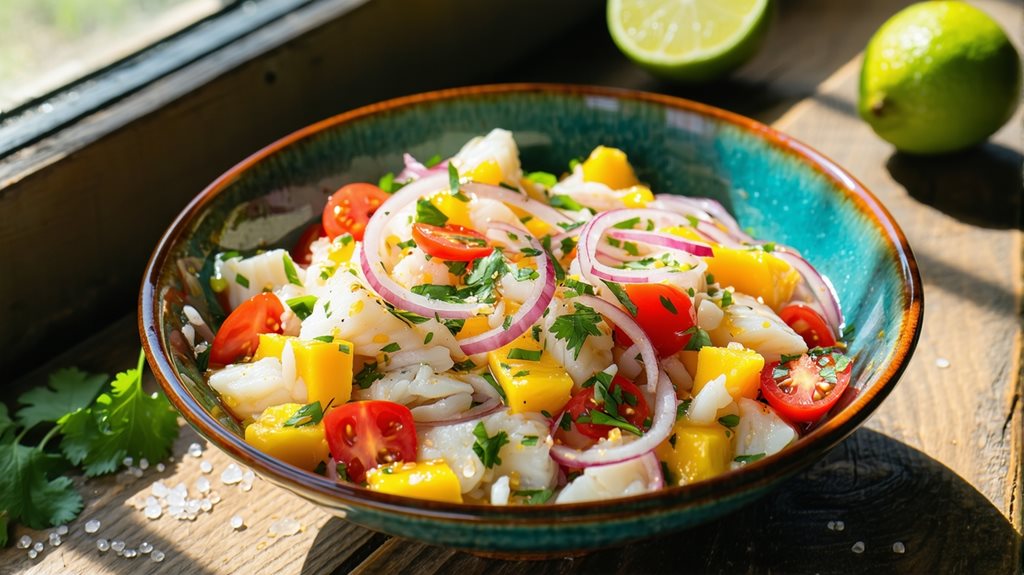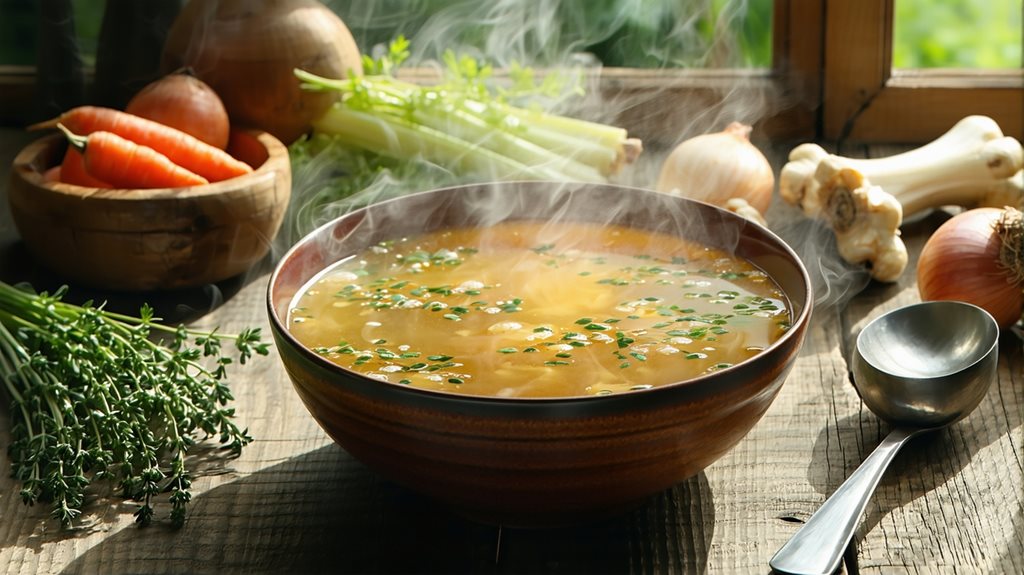Table of Contents
ToggleThings to consider as you discover more about plant-based foods.
Show Notes
Five things that I’ve discovered since I have started my plant based journey. you’re listening to the daidokoro video podcast. Hi, I’m Pat tokuyama, and you’re about to discover some of the tastiest ways to feed your mind, body and soul. A pharmacist by training you may know me as the founder of all day I eat like a shark, the food blog, YouTube channel, or as author of several Japanese cookbooks view desire to live a healthy life and are looking for a different way forward with a hunger for growth than this video podcast is for you. Daidokoro is a Japanese term for kitchen. And I’m glad you’re here with each episode, we’re going to be bringing clarity to your cooking by blending Japanese tradition and life lessons into bite sized bits that even a shark would enjoy ready to make some magic happen.
If you’re just getting started with your plant based journey, like I was a few years ago, or maybe you’ve already started on it, and you’re a few years in, perhaps there’s something that you can relate to or even share with this episode.
The first thing that I think I was most surprised by after reading my books, as well as going through the certificate program through E. Cornell, I’ll link both of those in the resources of this episode was that there’s actually different levels of whole foods plant based foods. So as you may know, the definition of whole food plant based foods is to eat as many Whole Foods as close to their original states as possible. So it’s not about elimination, it’s really about emphasizing those plant foods plus their natural state as possible. But in addition to that, and as some people have taken things, or interpreted them in their own way, which is totally cool.
There’s also subcategories or sub followings of whole food plant based foods. So that might be something like gluten free, soy free, oil free, nut free, vinegar free, dairy free, I’ve seen all kinds of different variations of it. And it can be sort of confusing, especially if you’re just getting started. So I think one of the things that I would really recommend for anybody who’s just getting started and looking into this as potential way of life is to really start with the original books, and maybe even take the Cornell course the plant based nutritional certificate course that I went through, to really get a better understanding of what these types of foods are, the health benefits, and really take your knowledge and learning to the next level if you want to, of course. So as you can tell, that was one thing that I discovered.
The second thing that I discovered is that the term plant based can be a little bit confusing, and is a little bit overused. So for example, plant-based things can be not just food, they might be things like soap, I have seen that as well as clothes, cosmetics, even, I think it’s being used more of a marketing term, because seems to be a little bit more popular these days than it has in the past, which is a good thing and a bad thing. Because of its popularity. Because it’s being used as a marketing tool, I think it’s going to be a little bit confusing, especially if you’re just getting started. But as it pertains to food, and the type of Japanese cooking that I tried to advocate, we’re talking specifically about Whole Foods plant based foods, also known as WFPB. So that was a little bit surprising to me, I would have thought that most plant based products, whether its food or other would really stick to that original definition that we just mentioned in the first bit that I discovered, but it’s not.
The third thing that I discovered is that the food scene is really changing and sort of evolving to accommodate this new way of living. So you might have heard of impossible burgers or, or beyond meats. So those are supposed to be foods that are like the real meat, but they’re made with plants. And they’re also supposed to be coming out with like plant based seafood. Well, I
think that’s good and exciting that they’re developing these kinds of things that would really question the benefit of eating these types of plant based foods, especially when they’re heavily processed and sort of synthesized as compared to eating the actual meat or seafood that they’re supposed to be replacing. So for me, in my experience, usually when you’re eating fake meats, like an Impossible Burger or Beyond Meat, both of which I’ve had, and yes, they are pretty good, at least in terms of the flavor and the texture and mimicking the real thing. I actually prefer to eat the real thing, even though I don’t do it as often as I used to. It’s just not as satisfying to eat something that I know is fake. It’s sort of like eating like a knockoff, if you will, when you have like a brand name. And then you just get like the knockoff, which is like a cheaper sort of copy of the original thing. It’s just not a satisfying, and that’s totally my choice. I respect your choice and whatever you decide to do with the food that you eat. But for me, I know that those types of foods are not something that really appeals to me, and was also sort of surprising. They’re getting very creative with it.
So I think if it helps people sort of make the change and move towards Whole Foods plant based foods, it could be a good thing, but not necessarily, if that’s the only thing that they’re going to be eating, for example, so that’s just me. So I’d be curious what you guys think if you have any questions about it or comments, make sure to check out the link in the description and leave me a voicemail. And maybe we can feature you on a future podcast episode.
So the fifth thing that I discovered was really about the small changes. So you don’t need to go on like a 30 or 90 day, or six month or a year of plant based foods in eating or a diet like that what helps is making small steps, small changes, which incrementally add up over time. And some of the clinical trials are the studies that have evaluated whole food plant based foods and their impact on health, like chronic disease, for example, do show positive benefits of even making just a little change. So that’s one of the other things that I really like about this type of lifestyle, and it’s one of the things that gets me excited is to know that each day, each meal is going to make a difference. And I think in the long run, especially all those things are gonna add up, and will hopefully keep me healthy. And if it’s something that you’re doing as well, it’ll keep you healthy and happy for a long time. And I think as more evidence comes out to support this sort of lifestyle, these types of foods, it’s going to become more commonplace, and it’s here to stay. It’s not a fad diet that’s gonna be popular today and then go away. It’s really a lifestyle that people can incorporate like yourself and make a positive impact on not only your health, but the environments and maybe your loved ones as well.
So if you haven’t yet started or thinking about started, it’s not too late. And we might be talking about that in a future episode. So stay tuned.
Thanks for joining us today from wherever you’re watching or listening from. And if you haven’t yet, it means a lot to me if you could share your thoughts in a review on iTunes to let me know what you think of this new video podcasts. And then I can take that feedback and make things better for next time. And to celebrate the launch of this brand new video podcast where you are going to be doing a little giveaway. All you got to do to enter is subscribe and send us a screenshot of your review. Make sure to check out the link in the description or show notes for all the details. And I’d encourage you to share this with a friend or a loved one because if you’ve gotten value out of it, chances are they will too. want to try cooking Japanese food at home from scratch. Head over to alldayieat.com/aisatsu to get started today. And if you’re new here make sure to check out alldayieat.com/daidokoro for all the show notes, bonus materials, resources and more.
If this episode inspired you in some way, take a screenshot of you listening on your device and post it to your Instagram Stories, and tag us, @alldayieatlikeashark
Resources
Are you new here? Here are your next steps:
- How would you like to discover how to cook plant based Japanese food, the EASY WAY? Get on the waitlist for my next LIVE video training and you’ll also get a FREE sample from my latest cookbook!
- Haven’t left a review yet? All you have to do is click here to leave a review on iTunes. and thanks in advance because it will help me make this better for next time. ❤
- I want to invite you to help contribute to this podcast by submitting a question for a future #Q&A bit of The Daidokoro Podcast. All you have to do is go click here and record a question (under 90 secs) that could be featured on an upcoming episode.




Konnichiwa! (Hello!) I'm Pat Tokuyama, a Japanese tofu cookbook author, who travels for music, food, and adventure. If you like Japanese tea, checkout some of the newestorganic japanese tea, matcha bowls and noren and more!
** Curious about the Plant Based Japanese Cooking Club? ** Learn more here!